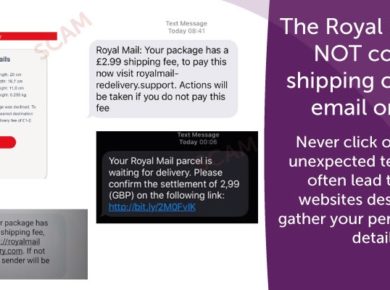Investing is a long way from simply putting your cash in a savings account to earn interest. All investments come with an element of risk attached rather than the safety and security of guaranteed returns of a simple savings pot.
To this end, we’ve put together a handful of the best tips for beginner investors to help you reduce your investment risk and hopefully be more prosperous in your trading:
Investing isn’t just for high rollers
You don’t have to have Warren Buffett’s bank balance to dabble in the stock market. Most investment funds will accept monthly deposits of £50 or lump sums of between £500 and £1,000. You do, however, have to be able to stomach watching your savings fall in value as well as rise.
Investing is a long game, so you must be prepared to lock your money away for a minimum of five years, ideally a decade or more. It is, therefore, best suited to those with long-term financial goals, saving for retirement or a child’s education, for example, rather than a house deposit or a new car.
Beware reckless caution
Gambling your money on unpredictable markets can be nerve-wracking. But history has repeatedly shown that over the long term equities outperform cash savings. This is hardly surprising when you consider the pitiful returns offered by banks and building societies on savings accounts at the moment.
The average long-term fixed cash ISA pays just 1% interest, according to the financial website Moneyfacts. That is less than the current rate of inflation of 2.1%, meaning that the majority of cash savers are actually losing money in real terms.
There are tax advantages to investing
Savers are entitled to an annual tax-free allowance of up to £20,000 this tax year on money invested through a stocks and shares ISA.
You do not pay capital gains tax on any income earned or interest paid on investments made through an Isa. You will also pay a flat rate of 10% on any dividends, which benefits higher-rate taxpayers in particular as they would otherwise pay 32.5%.
Think about what you want to invest in
Cash is traditionally seen as the least volatile asset class. Your money is safe and protected by the Financial Services Compensation Scheme in the event a bank or building society goes bust. But as shown in point two, its buying power can be eroded by inflation so you end up losing money in real terms.
Fixed interest investments, which are loans to companies (in the case of corporate bonds) or governments (known as government bonds or gilts), provide modest but reliable returns and are traditionally regarded as lower risk than equities. You can invest in this sector via bond funds.
Shares, also known as equities, offer a stake in a company. Shares tend to rise in value when a company does well and fall when it does not.
You can also invest in commercial property funds and commodities, such as steel, oil or gold.
Don’t put all your eggs in one basket
If you funnel all your hard-earned cash into shares in one company and the company tanks, you will lose it all. The idea is to ‘diversify’, which involves dividing up your lump sum across a portfolio and investing portions into varied companies, asset classes or global markets.
As some markets fall, others will rise and cancel out losses. How you spread your money will be led by your attitude to risk. Cautious investors shouldn’t have too much in equities.
Think about investing through a fund
You can buy shares directly but this can be expensive, difficult and risky. For a beginner, it’s usually better to invest through a collective fund, which offers an affordable way to buy up lots of different assets without the responsibility of making your own investment decisions. In the most popular type of investment fund, such as a unit trust or open-ended investment company (OEIC), you buy units and your money is pooled with others.
A fund manager then uses their expertise to buy and sell shares (or bonds) on your behalf to maximise returns for investors. There is a charge for investing in funds, but because you are spreading the cost with your fellow investors, it works out much cheaper than it would be for you to invest in the same shares yourself.
Spend time choosing the right fund
There are thousands of investment funds, so you need to do your homework to pick one that meets your financial goals and suits your risk appetite. The funds invest in more than 30 sectors, categorised by asset class (equities, say, or fixed-income); geography, for example, UK small companies, or Asian emerging markets; sector type, such as technology or property; and investment style such as growth or income.
Monitor the performance of a fund over a period of time, five or seven years, rather than just looking at whether a fund did well last year. Remember you are playing a long game.
Consider passive or tracker funds
Passive or tracker funds, which mirror or ‘track’ the performance of global stock market indices, are not run by managers but by computers. As a result, they are much cheaper. The jury is out on whether passive or ‘active’ funds – those run by a manager – produce better returns over the long term.
All trackers charge a management fee, so they are guaranteed to underperform the market they follow. But costs are low, as little as 0.15%, so the return you get will pretty closely match the index. By comparison, the most active funds are 0.75% or more. Your returns, therefore, need to at least equal that if your fund is to stand still.
Buy through a DIY investment platform to save money
Unlike opening a savings account, investing in a fund costs money. Buying your units directly from a fund manager is the most expensive option. It is cheaper and easier to buy through a fund supermarket or platform, which lets you hold, manage and review all of your investments in one place. DIY investment platforms, from companies such as Hargreaves Lansdown, Interactive Investor or Bestinvest, charge either a flat fee or a percentage of your investment.
For smaller investors, the cheapest is usually a platform that charges the lowest percentage-based fee. If you are investing a hefty sum, you are probably better off with a flat fee. We’d recommend checking out Freetrade and Wealthify’s stocks and shares ISAs for tax-free investing.
Invest regularly to minimise losses
It is impossible to pick the perfect moment to invest to beat the market. Improve your chances of maximising your returns by drip-feeding your money into a fund regularly, for example, once a month, rather than investing a lump sum in one go. This is known as pound-cost averaging. You buy fewer shares if you catch the market when it is rising but you can buy more at cheaper prices if it is falling, averaging out the overall cost and risk.









